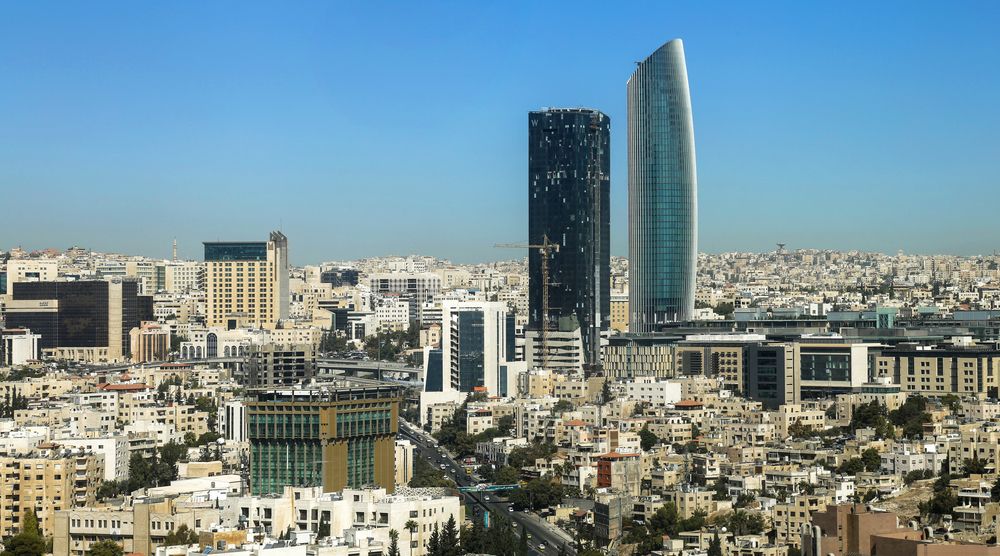The key to sustainable growth lies in Jordan's SMEs

Yara Asad is the project manager at Building Markets in Jordan where she focuses on assessing businesses and their investment readiness, while also evaluating opportunities for refugees and migrants and their economic impact on host countries.
Small to medium-sized enterprises (SMEs) in Jordan have a rather positive outlooking according to a new report published by Building Markets - Another Side to the Story: An Assessment of Jordanian, refugee and migrant owned businesses. More than 60 per cent of SMEs in the country are expecting their profits to increase in the next six months, and 58 per cent expect to hire more employees. Overall, 59 per cent expect to hire an average of 14 people in the next six months.
Jordan has experienced significant turmoil over the last decade. First, the global financial crisis took its toll, and then before markets could recover, Jordan began taking in refugees feeling the war in Syria, ultimately absorbing 1.4 million forced migrants over eight years. Simultaneously, primary trade routes closed, and Jordan’s resources and infrastructure were quickly depleted and strained by massive population growth. As a result, the country’s debt rose, unemployment increased, and gross domestic product (GDP) rapidly declined. While Jordan has received unprecedented levels of aid, the ebbs and flows of assistance have also made it difficult to strategically leverage this support.
Many view this influx as negative however, Jordanian, migrant, and refugee entrepreneurs offer another side to the story. Since the first wave of migrants and refugees saw a better future in Jordan, they have been contributing to the country’s development. Many are skilled traders, have moved their business to Jordan, and are introducing new products to the market. Fifty-three per cent of the owners of SMEs in Building Markets’ study are migrants and an additional 9 per cent are refugees, and 21 refugee/migrant entrepreneurs stated they owned a business prior to coming to Jordan, with an average of 86 employees.
Alongside this, Jordan’s government has made important progress upgrading the country’s economic infrastructure, which has been aided by openness to trade and investment. Internationally, Jordan has received unprecedented support and interest from donors, the private sector, and investors. The country is also emerging as a technology hub. In its findings, Building Markets noted that 10 per cent of refugee/migrant-owned businesses and 25 per cent of Jordanian businesses work in tech sectors or in sectors that intersect with technology (such as manufacturing computer components or selling computer software).
Ensuring that these entrepreneurs can thrive will create much needed jobs and ensure Jordan remains on a path of inclusive and sustainable economic growth.
In its recommendations, Building Markets urges policy makers to assist refugee/migrant and Jordanian SMEs to increase employment opportunities within their firms by boosting access to work permits, opening up new sectors where refugee/migrant businesses can operate, and by ensuring refugee/migrant women entrepreneurs have equal access to economic opportunities.
Building Markets also urges stakeholders and international organisations as well as the wider private sector in Jordan to develop inclusive local procurement policies. These policies can emphasise contracting goods and services from SMEs and creating quotas for contracting SMEs that are women-owned, refugee/migrant-owned, or that employ refugees, where such vendors can perform to acceptable standards and at a cost equal to or less than alternatives.
Building Markets has paved the way towards a new perspective about refugee/migrants in Jordan. Telling more of these stories would highlight the positive impact of these entrepreneurs and would encourage financial institutions, policymakers, and other market actors to realise their positive contributions and to put in place measures that overcome risks and enable them to work and formalise their businesses. The faster this happens, the faster they can become productive members of society that generate benefits for all.
To read the full report, visit: https://buildingmarkets.org/our-impact/jordan-0


